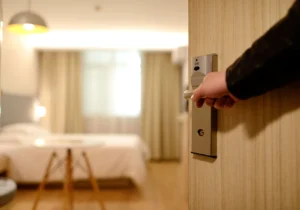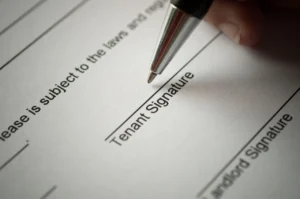Can Landlords Keep A Security Deposit If A Tenant Dies?
 If all goes well after termination of lease and inspection of the apartment, landlords return the tenant’s entire security deposit. However, what happens in the unfortunate event that a renter dies before the lease is up? Can a landlord keep the security deposit?
If all goes well after termination of lease and inspection of the apartment, landlords return the tenant’s entire security deposit. However, what happens in the unfortunate event that a renter dies before the lease is up? Can a landlord keep the security deposit?
Why Consider Security Deposit Return if a Tenant Dies During the Rental?
Technically speaking, dying while in a rental unit constitutes breaking the lease. While renters rights security deposit include a refund of the deposit when the lease is up, this assumes they do not violate the clauses of the lease. In certain instances, landlords are allowed to keep the security deposit because the lease has been broken.
While you can keep the security deposit, should you? It may generate a lot of bad will between you and the tenant’s surviving relatives if you do not return the security deposit.
If you believe you can get the apartment rented quickly, and can afford to return the deposit to surviving family members, it might be a good idea to do so. In a worst-case scenario, an upset family member may begin badmouthing you in the community or on third-party review sites. If you get a bad reputation, it may become difficult for you to find qualified tenants for open rentals.
Why You Might Keep a Tenant Security Deposit After Death
Most of the time, the deceased tenant is liable for the remainder of the lease term unless the lease was month to month. While you could keep the unit vacant and seek rent from the decedent’s executor, most landlords want to get the unit re-rented as quickly as possible
Cleaning up after a deceased tenant takes a lot of time and hard work. You might need to notify the tenant’s surviving relatives, who may be unable or uninterested in cleaning out the unit. You might need to clean the unit yourself and take the tenant’s possessions to a thrift store or to the local dump. If you do not want to do the work yourself, you’ll need to pay for a cleaning company. This translates to a lot of time and money spent addressing the situation.
Perhaps the best course of action is to clarify the matter in your lease agreement. Make tenants aware of the issue and clarify your stance. If you want the option to keep as much of the deposit as necessary to return the unit to a rental-ready state, and then plan to refund the remainder to the estate, write this into the lease. You might allow your tenant to specify a beneficiary who will receive the security deposit if he or she passes away. If no beneficiary is named, the security deposit will be returned to the tenant’s estate and the courts will determine what happens to the money through the probate process.
The American Apartment Owners Association protects the rights and interests of landlords, providing unbiased, legally accurate information that can help you manage your rented properties. Join AAOA to get access to our free forms* library, receive up-to-date information for landlords, and manage your rental without any legal worries.
*AAOA Disclaimer:
The information provided herein is for advisory purposes only and AAOA takes no responsibility for its accuracy. AAOA recommends you consult with an attorney familiar with current federal, state and local laws.













 Accessibility
Accessibility